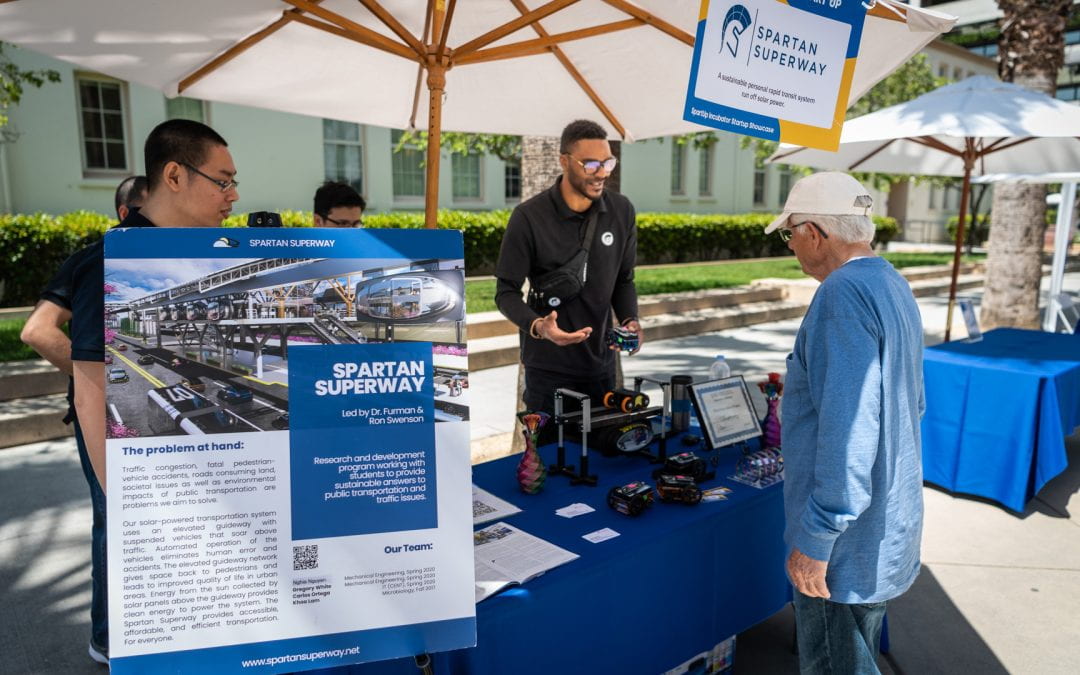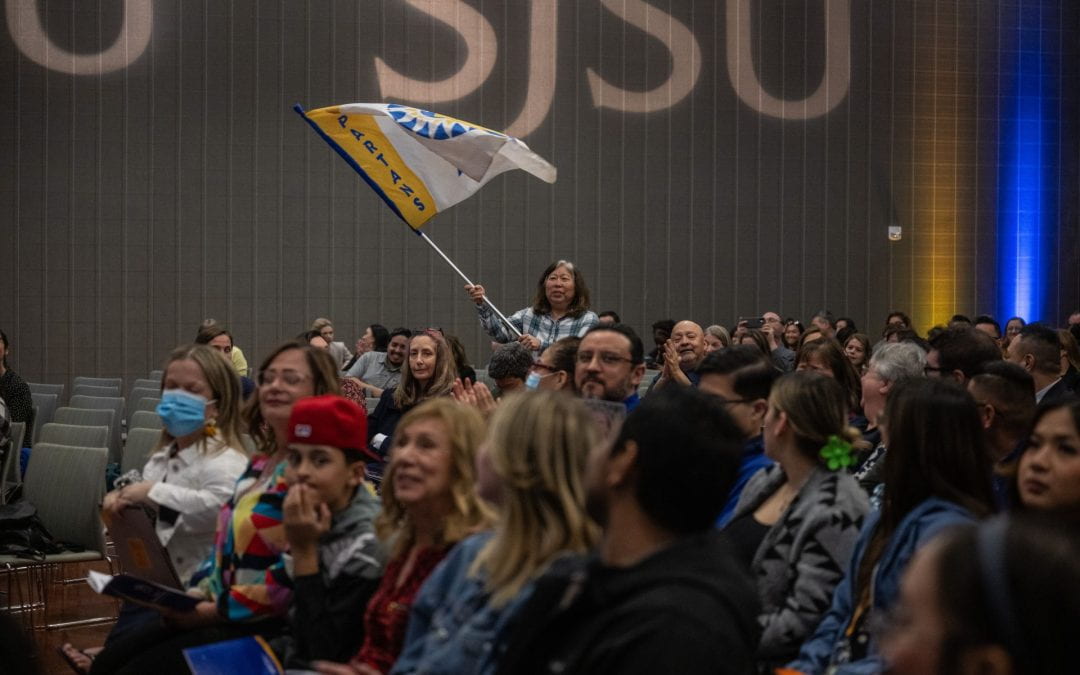SJSU’s Mineta Transportation Institute Awarded $4.6 Million Federal Railroad Administration Grant

Faculty members and researchers from San José State’s Mineta Transportation Institute will study the impact that climate change has on American railroads. Photo: APchanel.
Climate change and the consequential impacts of increased sea-level rise, coastal storms, landslides, extreme temperatures, wildfires and inland flooding now pose a significant risk to the North American freight and passenger rail network. So how can civic leaders protect public railways from large-scale natural disasters and extreme weather events?
Thanks to a $4.6 million grant from the Federal Railroad Administration, San José State University’s Mineta Transportation Institute (MTI) will establish the Climate Change and Extreme Events Training and Research (CCEETR) program, a multi-university consortium that will study risk mitigation strategies and preventative measures to improve the American rail network’s resiliency.
“SJSU is leading cutting-edge, innovative research that identifies risk mitigation strategies and preventative measures that will improve the U.S. freight and passenger rail network’s resiliency, thereby protecting the nation’s safety, security, and economic viability,” said MTI Executive Director Karen Philbrick.
In other words, the MTI is examining ways to make train travel safer for passengers, cargo and the environment.
Partner institutions include Colorado State University-Pueblo, Michigan State University, Oregon State University, and the University of Hawaii, all members of the Center for Surface Transportation Testing and Academic Research (C-STTAR) consortium in collaboration with ENSCO and the Transportation Technology Center in Pueblo, CO. The program plans to work with railroad companies to test various technologies at the Transportation Technology Center and on revenue service track.
“This grant leverages the tremendous expertise at SJSU in the areas of rail safety, emergency management, climate change policy and transportation planning,” said Hilary Nixon, deputy executive director of the Mineta Transportation Institute.
It also provides opportunities for our students to engage in impactful research designed to solve unprecedented challenges facing our rail system,” she added.
The grant, which was introduced in June as part of a $368 million Consolidated Rail Infrastructure and Safety Improvements (CRISI) Grant Program through the U.S. Transportation Department, enables C-STTAR partners to combat the catastrophic impacts that threaten lives, destroy equipment, interrupt rail service and cost taxpayers billions.
“I’m proud to celebrate the establishment of the CCEETR program, which will utilize SJSU’s expertise to improve rail safety and harden our rail network against the effects of climate change,” said California Representative Zoe Lofgren, who supported government funding for the CRISI program that enabled this research.
Planning ahead
MTI will lead two of the five studies supported by the grant: Planning, Training and Exercising for Crisis Events on the Railroad; and Climate Adaptation and Resilience Strategies in State and Regional Rail and Freight Plans.
Frances Edwards, deputy director of MTI’s National Transportation Security Center and director of SJSU’s master’s in public administration program, is leading the emergency crisis planning grant with Daniel Goodrich, MTI’s senior transportation security scientist.
Together, they will examine potential threats to the rail systems in rural communities in California and Arizona, develop emergency planning documentation, and offer hands-on training for railroad professionals as well as an in-depth exercise designed to prepare them for unforeseen climate disasters.
Climate change complicates disaster planning because changing temperatures affect both the frequency and intensity of natural disasters. Take wildfires: While California has a history of annual fires — many of which may have blown right over rail lines with little to no impact — last year’s Dixie Fire in Butte County reached temperatures close to 1,700 degrees, said Edwards.
When gas and electric companies are forced to cut power because of instances like wildfires, how does that affect railways and the communities that live alongside them?
“What’s different about this project is the opportunity not only to evaluate the threats but also to look at how to plan for the events, train people and give them an opportunity to practice,” Edwards added.
Serena Alexander, associate professor of Urban Planning and Regional Development and MTI research associate, is leading the climate adaptation project focused on planning, building, maintaining and operating a resilient rail system.
“A resilient rail infrastructure can absorb disturbance without losing basic function,” Alexander said.
“One challenge is that we have focused more on responding to and recovering from climate disasters, as opposed to planning to avoid catastrophic outcomes in the first place. The project that our team will work on stresses the importance of a proactive approach to creating a resilient freight and rail system in the United States.”
Visit the Mineta Transportation Institute to learn more.
Related Stories

Second Annual SJSU Research Week to Celebrate and Highlight Public-Impact Research

San José State Recognizes Outstanding 2023-2024 Staff and Faculty at Award Ceremony

“The Kite Runner” Flies Again at the Hammer Theatre, 15 Years Later

